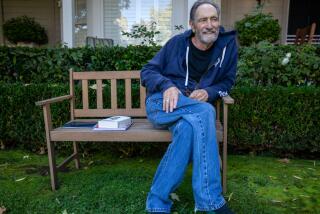Self-absorption abounds in ‘Elegy’
- Share via
Based on the recent novel “The Dying Animal” by Philip Roth, “Elegy” charts the doomed-to-fail love affair between older man David Kepesh (Ben Kingsley) and younger woman Consuela Castillo (Penelope Cruz). While it is always a pleasant change of pace to see a film that deals with maturity and the struggles of aging rather than the youth-regression/obsession of so many current movies, “Elegy” seems determined to make real every ageist dig that could be thrown its way -- out of touch, balefully slow and, for a film at least partly about the zesty enterprise of sex, awfully lifeless.
Roth has long been a chronicler of the foibles of the modern male, from “Goodbye, Columbus” onward, and his investigation may be reaching some sort of conclusion. Roth pushes the position that sex plays a part, even just tangentially, in many unsexy decisions made by the male of the species, but it’s a brand of preening navel-gazing that hasn’t been vanguard material since Dick Cavett had his own show and best represented the sort of classical intellectualism that the film insists is sexy.
As directed by Isabel Coixet from a screenplay by Nicholas Meyer, the character of Kepesh comes across as a cad who takes little pleasure from his sybaritic lifestyle, a mind without a heart or soul, while Castillo remains a cipher and mere plot device. It says much about the essential emptiness of the relationship between the characters played by Kingsley and Cruz that the actors who surround them -- especially Patricia Clarkson as Kepesh’s occasional lover and Peter Sarsgaard as his wounded son, but also Dennis Hopper as a philandering poet and Deborah Harry as his knows-better wife -- convey characters so much more interesting, more fully drawn and self-aware from even the scraps of screen time they are given.
It can rarely be for the best when the central characters are the least interesting people in a film, like a halo with no light to center it.
There is a late-breaking turn to Cruz’s character (that will go unspoiled here) that makes sense within the broader themes of Roth’s work -- an earlier Kepesh story is titled simply “The Breast” -- but that does not work within the confines of “Elegy.” There is a false sense of unburdening and redemption at the end of the film, which makes all the worrying and moaning about waning male virility seem that much more for naught. “Elegy” seems to mourn for the wrong things, making its self-examining characters seem merely narcissistic and more than a little pathetic.
--
“Elegy.” MPAA rating: R for sexuality, nudity and language. Running time: 1 hour, 48 minutes. In selected theaters.
More to Read
Only good movies
Get the Indie Focus newsletter, Mark Olsen's weekly guide to the world of cinema.
You may occasionally receive promotional content from the Los Angeles Times.











